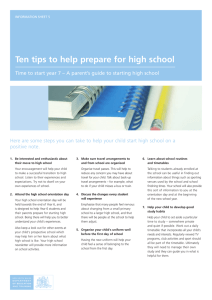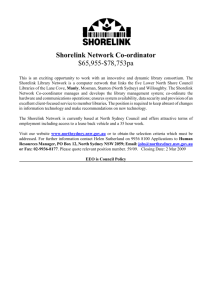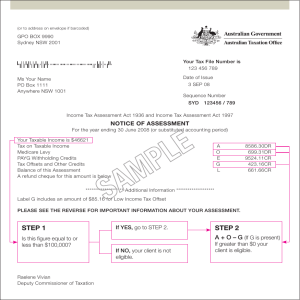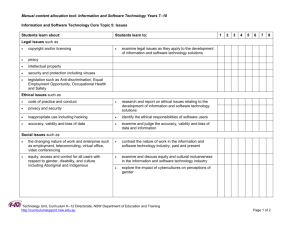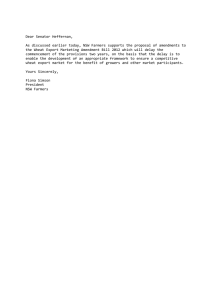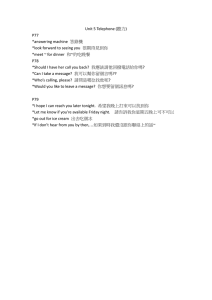Homework Policy Guidelines - NSW Department of Education
advertisement
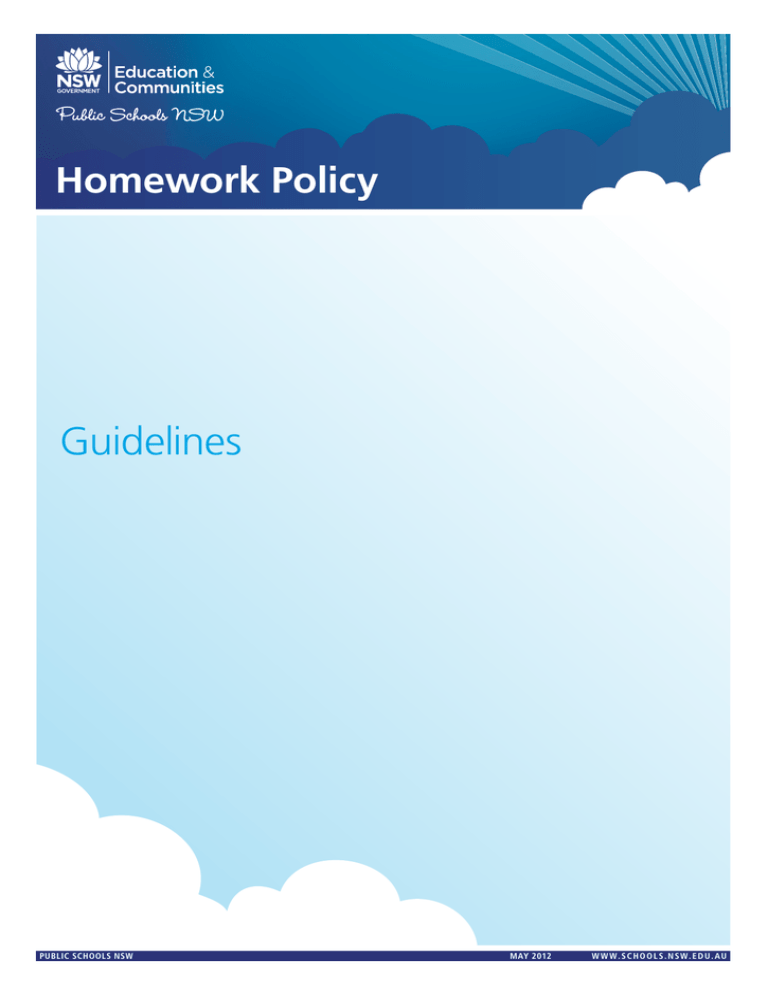
Homework Policy Guidelines Research PUBLIC SCHOOLS NSW scan MAY 2012 W W W. S C H O O L S . N S W. E D U . A U Contents Introduction Policy requirements Research Homework Policy considerations Age-specific considerations Responsibilities Suggested process Suggested structure for a Homework Policy PUBLIC SCHOOLS NSW HOMEWORK POLICY: GUIDELINES 3 3 3 4 5 6 7 8 NEALS MAY 2012 WWW.SCHOOLS.NSW.EDU.AU 2 Homework Policy: Guidelines Introduction The Homework Policy Guidelines contains information for schools that would like to review, update or newly develop a Homework Policy. These guidelines are not prescriptive and schools may choose to follow their own processes to meet the requirements of the NSW Department of Education and Communities’ Homework Policy. For the purposes of the department’s Homework Policy, homework is defined as any task assigned by school teachers intended for students to carry out during non-school hours designed to meet specific learning goals. Students will also participate in a range of activities and have diverse experiences outside of school hours that may enhance their learning. Experiences and activities at home that help to create a rich learning environment for children are to be encouraged. They should not, however, be considered as homework unless they are assigned by the child’s teacher. Policy requirements The NSW Department of Education and Communities’ policy website specifies that each school is to develop a Homework Policy. A school’s Homework Policy should be: relevant to the needs of students developed in consultation with key school community stakeholders including teachers, parents/ caregivers and students. communicated to staff, students, parents/caregivers, particularly at the time of student enrolment. In developing their Homework Policy, schools should be aware that while the Policy itself is compulsory, the setting of homework and any indicative time allocations across year levels are not. This approach to Homework Policy is in line with a number of factors: community expectations about homework are variable research regarding the value of homework is inconclusive schools are best placed to make decisions about homework in consultation with their communities. Research A Homework Policy: Research scan was undertaken by the NSW Department of Education and Communities in 2012. The Homework Policy: Research scan summarises the benefits and the drawbacks of homework, considers strategies to maximise the benefits, and examines in detail whether time spent on homework results in improved student achievement. The roles of parent involvement and socioeconomic status are also considered. There is little consensus in the literature as to whether homework raises student achievement. Most researchers, however, conclude that for primary students, there is no evidence that homework lifts academic performance. Any revision or development of a Homework Policy should be read in conjunction with the latest research on homework. PUBLIC SCHOOLS NSW HOMEWORK POLICY: GUIDELINES NEALS MAY 2012 WWW.SCHOOLS.NSW.EDU.AU 3 Homework Policy: Guidelines Homework Policy considerations Quality Research indicates that student learning may be enhanced if homework is: appropriate for each student’s age and ability relevant to each student’s needs purposeful and designed to meet specific learning goals varied and challenging, but achievable built on knowledge, skills and understanding developed in class clearly stated and requirements made explicit during class time supported by teacher strategies for students having difficulties with homework. Homework tasks should be assigned by teachers with a specific, explicit learning purpose. On completion, teachers should acknowledge student effort and provide feedback related to student learning. Manageability The quantity of homework needs to be manageable so that teachers can ensure quality, and can provide feedback to students on completion. Homework that is manageable for students will: be age appropriate consider students’ outside of school hours commitments, such as sport, cultural activities, tuition, parttime employment and home responsibilities take into account students’ access to resources and technology beyond school be clearly communicated to students provide some flexibility and options to allow for different student circumstances. Secondary schools need to consider mechanisms to plan and monitor the amount of homework given to students across all subjects. Communication Communication and the provision of clear information between teachers, parents/caregivers and students is a requirement of an effective school Homework Policy. In developing a policy, the school community needs to determine what communication approaches and processes will be most effective for parents/caregivers, students and teachers. The school’s Homework Policy should be made available to the school community, particularly at the time of enrolment. Parents/caregivers of students experiencing difficulties completing homework need to be confident that these concerns can be discussed with the teacher, and that guidance and assistance will be provided. PUBLIC SCHOOLS NSW HOMEWORK POLICY: GUIDELINES NEALS MAY 2012 WWW.SCHOOLS.NSW.EDU.AU 4 Homework Policy: Guidelines Age-specific considerations Primary schools While there is little conclusive evidence of the learning benefits of homework in infants and primary schools, quality homework in these stages may help students to develop effective study habits and broaden their understandings and skills across the curriculum. Homework for Kindergarten-Year 2 In general, students are not expected to complete formal homework in Kindergarten. Students may be given books to read at home, as appropriate. In Years 1 and 2 some formal homework may be set. For example, students might be asked to read and write, learn words for spelling and complete some mathematical activities. Homework for Years 3-6 Homework in Years 3-6 may be varied and students may be expected to work more independently. Students could be encouraged to read and practise mathematical concepts learnt at school. Other homework may also be set across areas of the curriculum. Secondary schools In secondary school there is more evidence, especially in senior years, that homework can enhance student learning. Effective homework in secondary schools may help students to develop and broaden their understanding and skills across new and familiar curriculum areas. Secondary schools must establish mechanisms to monitor the amount of homework across all subjects to ensure that students’ workloads are manageable. Homework for Years 7-8 In Years 7-8, homework may be set across the curriculum. Homework may include regular tasks, assignments that require investigation and preparation for examinations. Schools can support students to develop time management skills, guide them to become more independent learners and ensure their workloads are manageable. This is particularly important for those Year 7 students who are transitioning to high school. Homework for Years 9-10 In Years 9-10, homework may be set on a regular basis across the curriculum. Homework might include practice that complements work learnt in class, assignments, as well as preparing for assessment tasks and studying for exams. Schools may continue supporting students to develop their time management skills and encourage independent work. Homework for Years 11-12 In Years 11-12, homework will be expected to be completed independently. Homework may be set in all subjects, and students may be required to prepare for assessment tasks and study for exams. Times will vary according to learning needs and individual programs of learning. PUBLIC SCHOOLS NSW HOMEWORK POLICY: GUIDELINES NEALS MAY 2012 WWW.SCHOOLS.NSW.EDU.AU 5 Homework Policy: Guidelines Responsibilities Principals: Develop a Homework Policy, in consultation with their school community Communicate the Homework Policy to staff students, parents/caregivers Monitor and support teachers in the implementation of the Homework Policy Ensure that homework is consistent with the school’s learning goals Support the need for balance between homework and the many other commitments in students’ lives Provide mechanisms for teachers and parents/caregivers to communicate about homework Recognise that some parents/caregivers may not agree with the school policy on homework. This may necessitate the development of alternative strategies. Teachers: Implement the school’s Homework Policy Communicate the purpose, benefits and expectations of homework to students and parents/caregivers PUBLIC SCHOOLS NSW Acknowledge student effort in completing homework and provide timely and relevant feedback on achievement Ensure resources and materials are easily accessible for students Support students having difficulties with homework Discuss with students and parents/caregivers any developing issues regarding a student’s homework Discuss homework practices with colleagues. HOMEWORK POLICY: GUIDELINES NEALS MAY 2012 WWW.SCHOOLS.NSW.EDU.AU 6 Homework Policy: Guidelines Suggested process Schools in consultation with their communities should determine whether a review of an existing Homework Policy is necessary or if a new Homework Policy needs to be developed. If there has not been a recent review, then the following would be a suggested approach. Action Resources Step 1 Form a Homework Policy Committee Representation from executive, staff, parents/caregivers (P&C) and, if appropriate, students Step 2 Survey attitudes of parent/caregivers and students with regard to homework The NSW Department of Education and Communities’ Educational Measurement and Accountability Directorate (EMSAD) has surveys about homework: Develop own survey instrument or use all or part of existing survey tools https://detwww.det.nsw.edu.au/ directorates/schoimpro/EMD/surveys.htm Interpret the data EMSAD can assist schools in interpreting the data for these online surveys. Step 3 Hold a school staff meeting, P&C meeting, parents/caregivers/students’ forum after the results of the surveys have been analysed PowerPoint presentation <Homework Policy: Consultation> Insert relevant details into the PowerPoint provided Equipment: Computer, projector, Activity sheets Appropriate venue Pre-reading materials The Homework Policy: Research Scan, the department’s Homework Policy and the school’s current Homework Policy, if applicable Step 4 Develop a draft Homework Policy School’s Homework Policy Committee Completed Activity sheets from Step 3 Step 5 Circulate the draft Homework Policy for final comment by the school community Draft Homework Policy Feedback form Step 6 Develop the final version of the Homework Policy for dissemination School’s Homework Policy Committee Feedback from draft Policy review process Step 7 PUBLIC SCHOOLS NSW Communicate the Homework Policy to the school community HOMEWORK POLICY: GUIDELINES NEALS Homework Policy document and accompanying letter MAY 2012 WWW.SCHOOLS.NSW.EDU.AU 7 Homework Policy: Guidelines Suggested structure for a Homework Policy Rationale Why is this policy being written? What does this school and its community believe about the importance of homework? This section may also contain some background information about the school, about the educational benefits of homework or other factors relating to the policy. Policy statement A brief one to two sentences about what the policy hopes to achieve. Implementation This section describes how the policy will be achieved including what constitutes homework in the context of this school (general description), responsibilities-school, teachers, parents/caregivers, students and stage or subject requirements (specific descriptions and suggested time allocations, if appropriate). Monitoring, evaluation and review Outline when and how the Policy will be monitored, evaluated and reviewed. PUBLIC SCHOOLS NSW HOMEWORK POLICY: GUIDELINES NEALS MAY 2012 WWW.SCHOOLS.NSW.EDU.AU 8 GPO Box33 Sydney NSW 2001 Australia T 9561 8000 www.schools.nsw.edu.au © May 2012 NSW Department of Education and Communities
